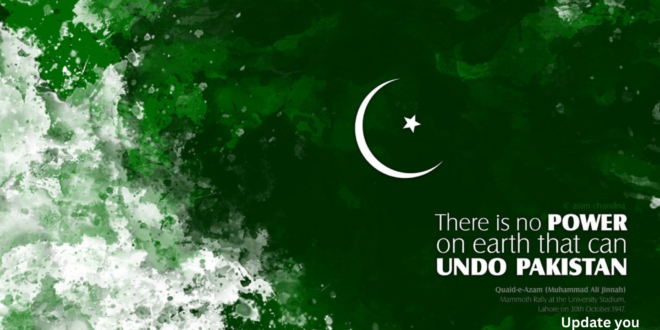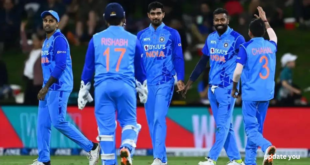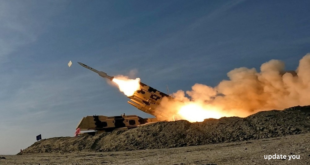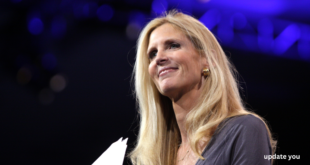As August 14th approaches, you may find yourself reflecting on the rich traditions that surround Pakistan’s Independence Day. This momentous occasion, marking the country’s liberation from British rule in 1947, is celebrated with fervor and patriotism across the nation. From flag-hoisting ceremonies to vibrant parades, you’ll witness a tapestry of cultural events that honor Pakistan’s hard-won freedom. Whether you’re a longtime resident or a curious visitor, understanding these time-honored customs will deepen your appreciation for this significant day. Join us as we explore the meaningful ways Pakistanis commemorate their independence and keep the spirit of national pride alive.
History of Pakistan’s Independence Day
The Road to Independence
Pakistan’s journey to independence began with the growing demand for a separate Muslim state in British India. The All India Muslim League, led by Muhammad Ali Jinnah, first articulated this vision in 1940, based on the belief that Muslims and Hindus were distinct nations with their own customs and traditions. The Lahore Resolution of 1940 played a crucial role in laying the foundation for Pakistan’s creation.
The Partition and Pakistan’s Independence Day
On August 14, 1947, Pakistan finally achieved independence from British colonial rule, marking the birth of the nation. This momentous event was the result of the partition of British India, which divided the subcontinent into two independent dominions: Pakistan and India. The Indian Independence Act of 1947 formalized this division, with Pakistan comprising the Muslim-majority regions in the northwest and east.
Significance of the Date
While initially celebrated on August 15, Pakistan’s Independence Day was later shifted to August 14 to recognize that Muhammad Ali Jinnah took the oath of independence on this day. Interestingly, August 14 also coincides with the Islamic holy night of Laylat al-Qadr, adding further significance to the date for many Pakistanis.
Early Celebrations and Challenges
The first Independence Day was marked by widespread celebrations across the new nation. However, it was also a time of great upheaval, as millions of people were displaced due to religious violence that accompanied the partition. Despite these challenges, the newly formed state of Pakistan embarked on its journey as a sovereign nation, guided by the vision of its founders.
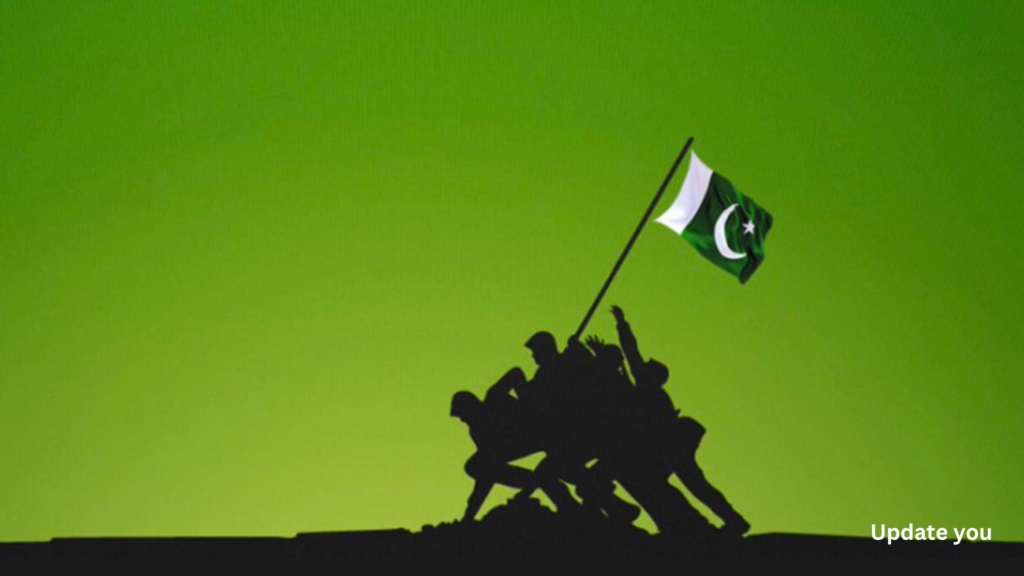
Pakistan’s Independence Day Celebrations and Traditions
National Festivities
Pakistan’s Independence Day, celebrated annually on August 14th, is a vibrant display of national pride and unity. The day kicks off with a 31-gun salute in the federal capital and 21-gun salutes in provincial capitals, setting a patriotic tone for the festivities to follow. In Islamabad, the capital city, the main ceremony features the hoisting of the national flag at the Parliament and Presidency buildings, accompanied by the national anthem and speeches from the country’s leaders.
Community Celebrations
Across the nation, communities come together to mark this significant day with parades, cultural programs, and fireworks displays. The colors green and white, representing Pakistan’s flag, dominate the landscape as people adorn their homes, streets, and public spaces with lights, candles, and flags. Schools and colleges organize events where students deliver speeches, perform plays, and sing patriotic songs, fostering a sense of national identity among the younger generation.
Family Traditions
Independence Day is also a time for families to come together and celebrate their heritage. Many Pakistanis enjoy traditional dishes, participate in games, and share stories of the country’s struggle for freedom. The lighting of candles and oil lamps is a common practice, symbolizing the “bright light” of independence. For Pakistanis living abroad, the day is an opportunity to connect with their roots by cooking traditional foods, attending local community events, and sending gifts or remittances to family back home.
Flag Hoisting Ceremonies Pakistan’s Independence Day
Flag hoisting ceremonies are a cornerstone of Pakistan’s Independence Day celebrations, symbolizing the nation’s sovereignty and unity. These events are held with great reverence across the country and in Pakistani diplomatic missions worldwide.
Official Ceremonies
At the heart of these ceremonies is the solemn act of raising the national flag. In diplomatic missions, such as the Embassy of Pakistan in Vienna, Austria, flag hoisting ceremonies are held promptly at 10:00 hours on August 14th. These events bring together Pakistani expatriates, fostering a sense of community and national pride far from home.
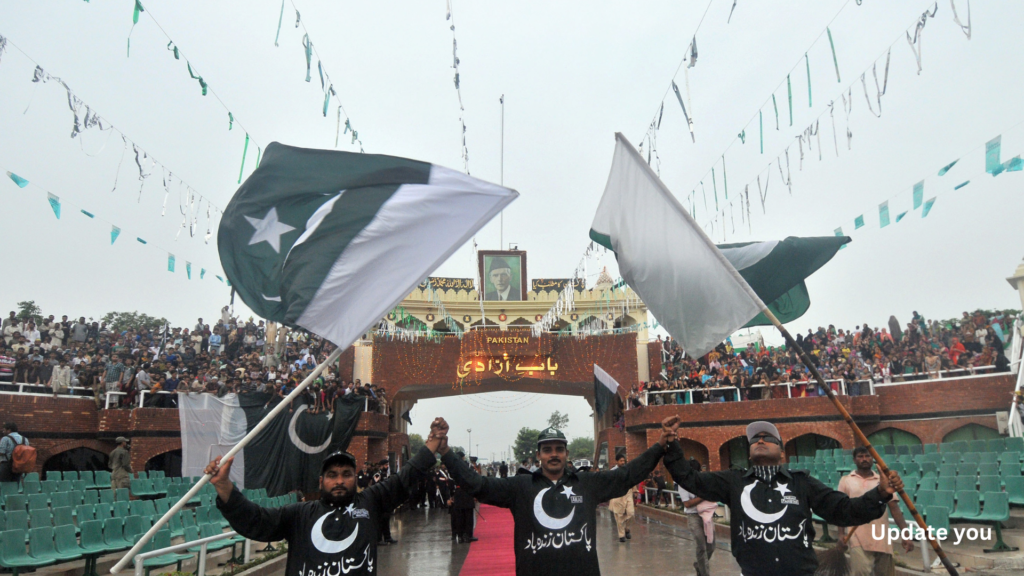
Community Participation
The ceremonies are not just official affairs but community gatherings. In Abuja, Nigeria, for instance, the Pakistan High Commission’s flag hoisting ceremony attracted a large number of Pakistani residents and their families. This inclusive approach ensures that all Pakistanis, regardless of their location, can participate in this significant national observance.
Cultural Showcases Pakistan’s Independence Day
Many flag hoisting events go beyond the simple act of raising the flag. At the Consulate General in Jeddah, the 76th Independence Day celebration included speeches by students, cultural performances, and tableaus showcasing Pakistan’s heritage. These additions transform the ceremony into a comprehensive celebration of Pakistani identity and achievements.
Parades and Cultural Events
Grand National Parade
The centerpiece of Pakistan’s Independence Day celebrations is the grand national parade, also known as the “Azadi Parade.”
This spectacular event takes place at the Pakistan Military Academy Kakul, with the Chief of Army Staff and Prime Minister in attendance. The parade showcases the nation’s military might and cultural diversity, featuring marching contingents, colorful floats, and aerial displays that captivate spectators from across the country.
Flag Hoisting Ceremonies Pakistan’s Independence Day
The main Independence Day ceremony occurs in Islamabad, where the national flag is proudly raised at the Presidential and Parliament buildings. This solemn event, accompanied by the national anthem and speeches from top officials, sets the tone for similar flag-raising ceremonies held at provincial, divisional, and district headquarters throughout Pakistan. These ceremonies serve as powerful reminders of the nation’s hard- won freedom and unity.
Cultural Festivities Pakistan’s Independence Day
Independence Day in Pakistan is marked by a vibrant array of cultural events that showcase the country’s rich heritage. Cities like Karachi, Lahore, Islamabad, and Peshawar host elaborate street parades, music and poetry contests, children’s shows, and art exhibitions. These festivities not only entertain but also educate younger generations about Pakistan’s history and diverse cultural tapestry. As night falls, spectacular fireworks displays light up the sky, particularly at iconic locations like the Minar-e-Pakistan in Lahore, creating a festive atmosphere that unites citizens in patriotic fervor.
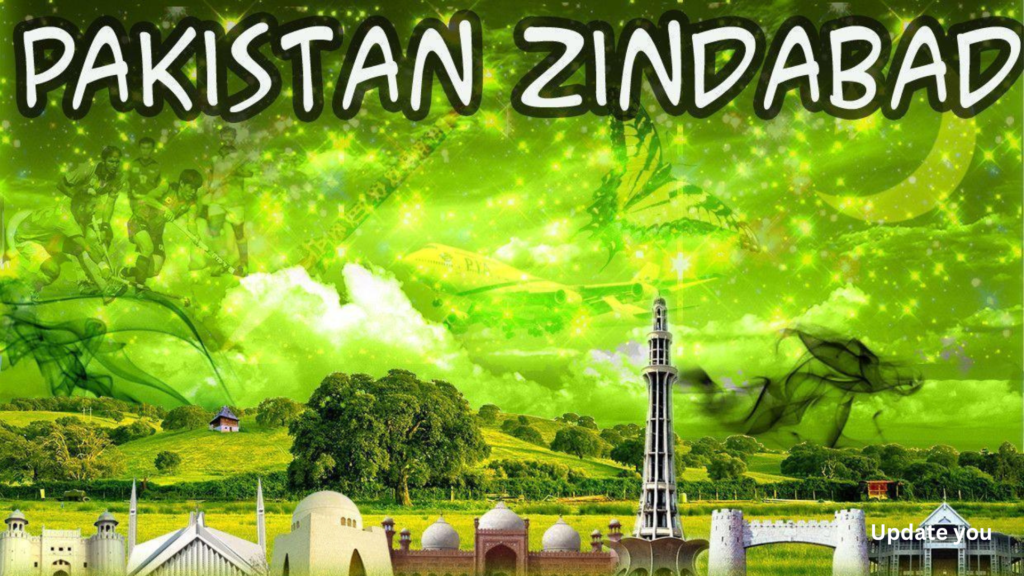
Pakistan’s Independence Day Messages and Speeches
Official Ceremonies and Addresses
Independence Day in Pakistan is marked by significant official ceremonies, particularly in the capital city of Islamabad. The day begins with flag-raising ceremonies at the Presidential and Parliament buildings, symbolizing the nation’s sovereignty. A 31- gun salute adds to the solemnity of the occasion. The highlight of these events is the live televised speeches delivered by the President and Prime Minister, addressing the nation and reflecting on Pakistan’s journey since independence.
Messages of Unity and Progress Pakistan’s Independence Day
Government officials, political leaders, and celebrities use this platform to deliver messages highlighting Pakistan’s achievements and future goals. These speeches often emphasize national unity, economic progress, and social development. They also pay tribute to the sacrifices made by national heroes during the struggle for independence. The content of these addresses aims to inspire patriotism and reinforce the shared values that bind the diverse Pakistani population.
Engaging the Public and Diaspora
Independence Day messages extend beyond official ceremonies. Schools and institutions organize patriotic events, where students and staff deliver speeches celebrating the nation’s history and cultural heritage. Social media platforms buzz with Independence Day greetings, allowing citizens to share their pride and hopes for the country. Even the Pakistani diaspora participates, organizing independence day celebrations in countries with significant Pakistani populations, spreading the message of national pride across borders.
 Update
Update
